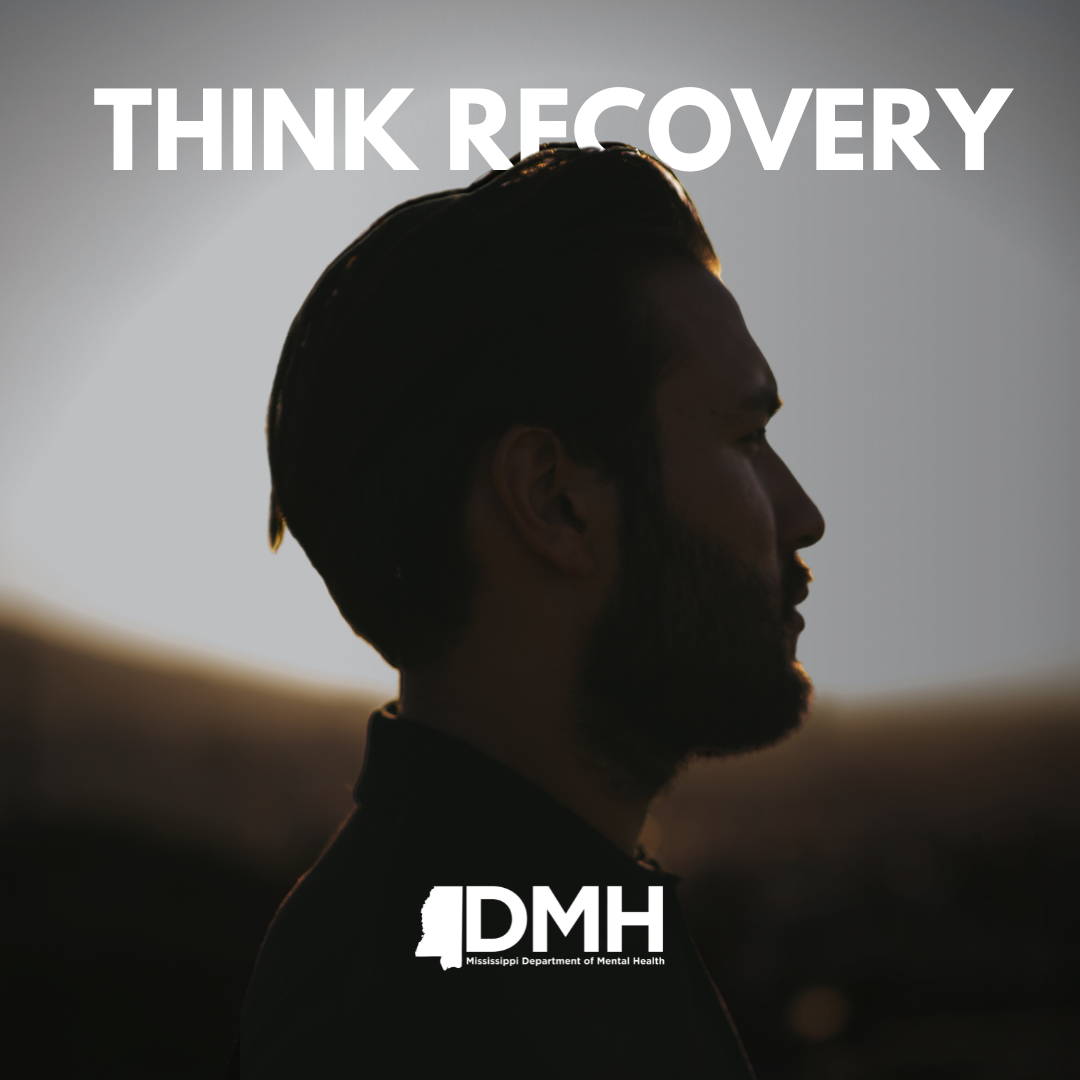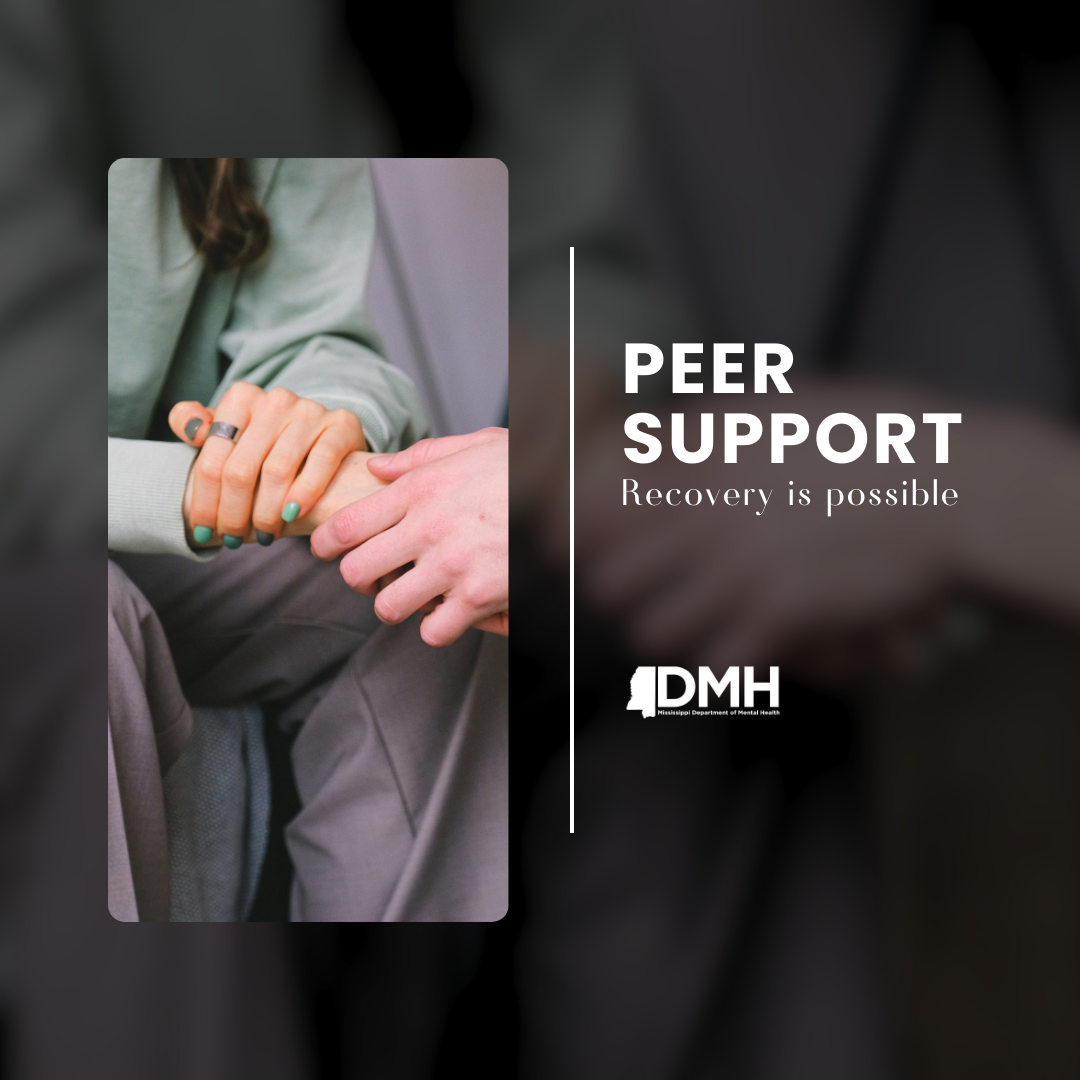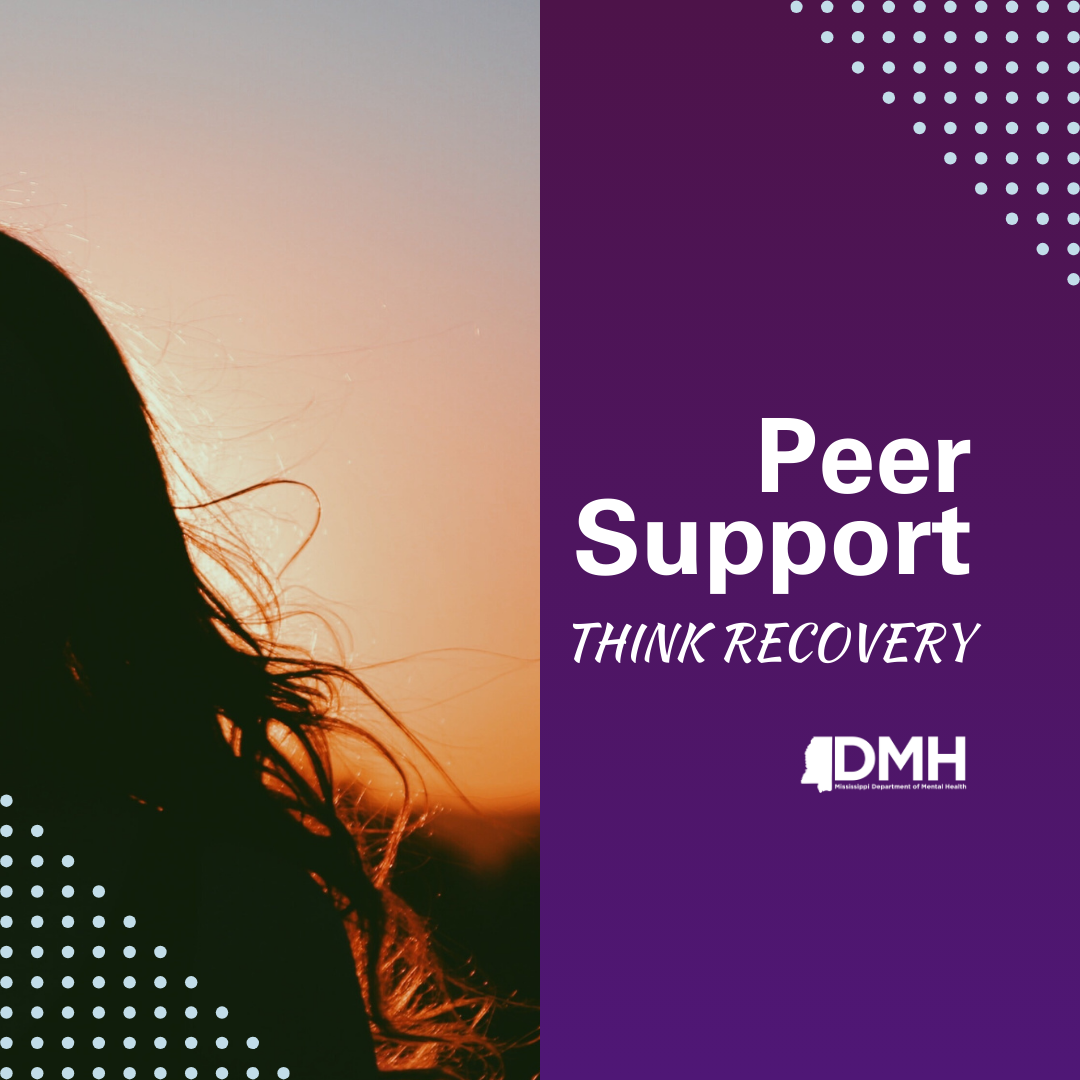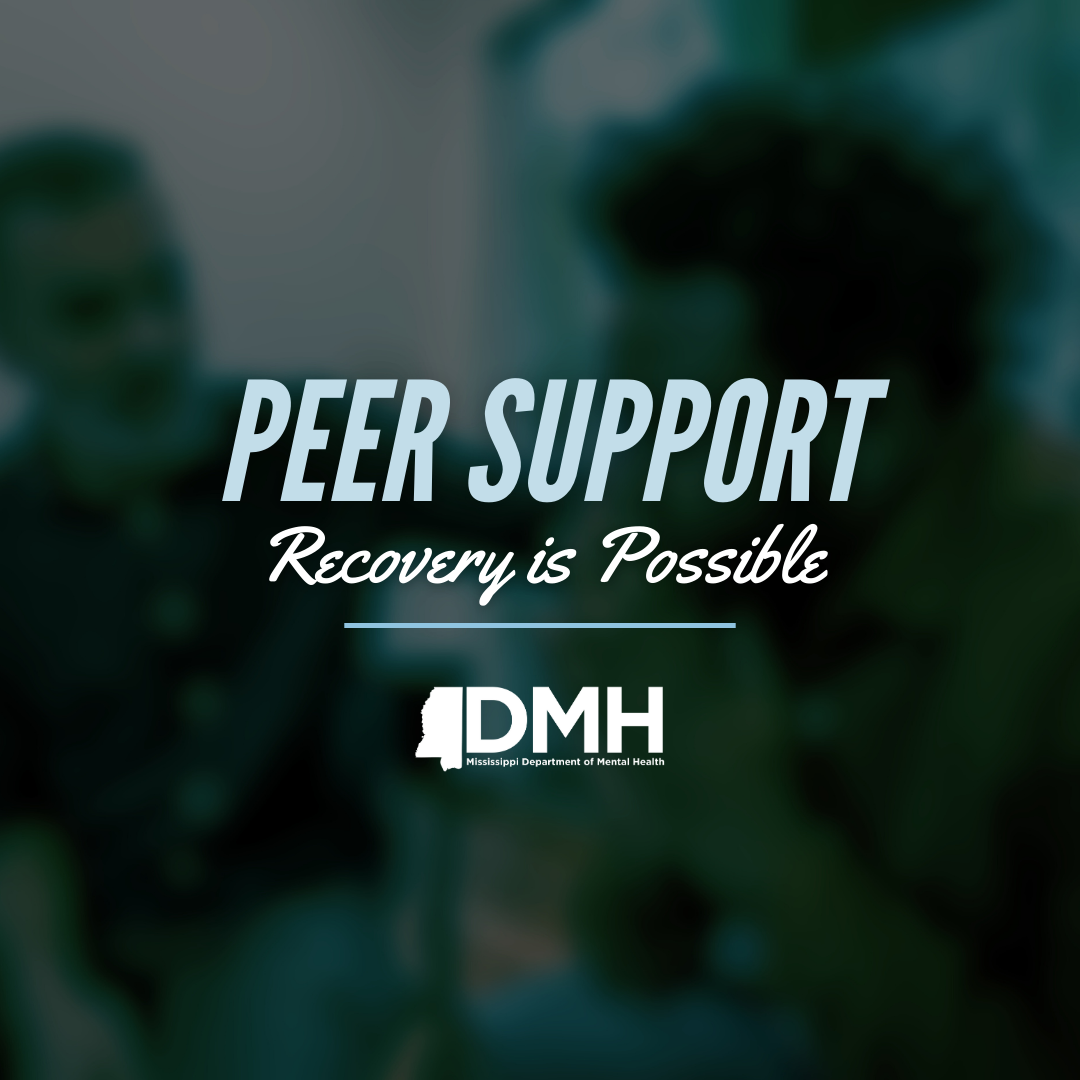Peer Support Services
What Is
PEER SUPPORT
Peer support is the term commonly used to refer to all the activities that peer specialists perform. According to NAMI, peer support is getting help from someone who has been there. People with similar experiences may be able to listen, give hope and guidance toward recovery in a way that is different from, and may be just as valuable, as clinical mental health services. Peer services include mutual support groups, peer-run programs, and services in traditional mental health agencies provided by peer support specialists. While peer support groups may be composed entirely of people who have simply learned through their own experience, some types of peer providers undergo training and professional certification. These individuals use their lived experiences in combination with skills training to support peers and/or family members with similar experiences. In addition to direct services, many peer-run organizations advocate to improve opportunities for people recovering from mental illnesses.
2024
Trainings
Adult/Recovery CPSS Module info
The CPSS Adult/Recovery Module will return to 50% virtual and 50% in-person training in 2025.
When submitting your application to DMH, please indicate the date of the training you wish to attend at the top of the application. Each training will be available to the first 25 qualified applicants.
Mississippi Department of Mental Health (DMH)
Division of Recovery & Resiliency
Attn: CPSS Renewal
239 North Lamar Street
1001 Robert E. Lee Building
Jackson, MS 39201
You can find applications and other documents below.
Annual Peer Conference
The Annual Peer Conference is scheduled for May 29-31, 2025. Location is to be determined. More information will be available as details are finalized.
Success Stories
peer Support Designations
A Certified Peer Support Specialist Professional (CPSSP) is one who has successfully completed the CPSSP Training provided through the MS Department of Mental Health (DMH).
This training grounds participants in recovery concepts and build skills in creating helpful peer relationships throughout the recovery process and focus on ethical practice for peers. The CPSSP training designations are Adult and Recovery, Parent/Caregiver, Young Adult, Forensic Peer Recovery, and Recovery only (must have been previously trained in the Adult designation prior to May 2021). Adult and Recovery designation trains individuals who have personal lived experience with a behavioral health diagnosis (mental illness and/or substance use disorder) who can demonstrate their own efforts in self-directed recovery. Parent/Caregiver designation trains biological/adoptive parents or relative caregivers with permanent legal custody who are raising or have raised a child with an emotional, social, behavioral and/or substance use disability. Young Adult designation trains individuals between 18 and 26 years old with lived experience with a behavioral health diagnosis (mental illness and/or substance use disorder) who can demonstrate their own efforts in self-directed recovery. The Forensic Peer Recovery designation trains individuals who have personal lived experience with a behavioral health diagnosis (mental illness and/or substance use disorder) and history within the criminal justice system who can demonstrate their own efforts in self-directed recovery. Applications for all designation trainings are available in the section below labeled “CPSS Documents.” Applicants will be notified of acceptance after applications have been reviewed.
To become a CPSSP, a test must be completed with a passing score of at least 75%, verification of current employment with a program funded and/or certified or licensed by the Mississippi Department of Mental Health, and credentials from the DMH Division of Professional Licensure and Certification (PLACE) must be obtained.
The purpose of the Peer Bridger Project is to improve the transition process from inpatient care to a community-based level of care, improve the quality of life, reduce the need for readmission, and increase the number of individuals who attend follow-up appointments. Intensive peer support services are provided by State Certified Peer Bridger Support Specialists who have had experience living with mental health and substance use challenges. These services are currently provided in behavioral health programs, community mental health centers, and crisis stabilization units.
To become a Peer Bridger Support Specialist, you must have first successfully completed the Certified Peer Support Specialist Professional (CPSSP) Training. If interested, complete a Peer Bridger Registration Form.
The Peer Bridger Supervisor Training is designed for agency administration/management overseeing Peer Bridger programs throughout the state. Its purpose is to highlight efficient ways to ensure collaborative efforts between inpatient and outpatient services designed to ensure this continuum of care are uninterrupted. If you’re overseeing a Peer Bridger program and in need of this training, PB Supervisor Training Form.
As mentioned above, the designation of Forensic Peer Support Specialists is the latest designation for Peer Support Specialists in Mississippi. For the application and and additional documents related to the Forensic Peer Recovery Designation, please see the following documents: CPSS-F Application CPSSP Additional Designation Form Information Gathering Form- Currently Incarcerated Information Gathering Form Reference Form Scope of Activities Verification of Employment. All other documents are below in the section labeled CPSS Documents.
The Certified Peer Support Specialist Professional (CPSS) Supervisor Training is designed to equip DMH Certified agency administration/management and supervisors in the state mental health system with effective tools needed to oversee DMH certified peer support programs and their support staff. The effective incorporation of this workforce is greatly dependent upon the quality of the relationship between the certified peer support specialist and his/her supervisor. This training will focus on:
- Recruitment, Hiring and Retention of CPSSP
- Preparing the Organizational Culture for Peer Support
- Supervision of CPSSP
- Role of CPSSP



